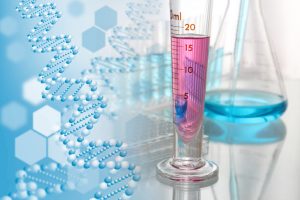Orchard Therapeutics says GSK’s cell line tech will reduce reliance on plasmids and speed gene therapy development.
The UK gene therapy firm licensed GSK’s lentiviral stable cell line technology (LV-SCLT) this week.
The plan is to use the cell line to produce OTL-103 – a candidate for Wiskott Aldrich syndrome – and OTL-300 – a therapy for transfusion-dependent beta thalassemia.

Image: iStock/Ca-ssis
Orchard spokeswoman Molly Cameron told Bioprocess Insider “We aren’t disclosing financial details around the deal, however this agreement aligns with Orchard’s broader strategy around investing in manufacturing innovation, laid out earlier this year.
She added, “We collaborated with GSK on the implementation of this technology through the work done in the OTL-300 program for TDT, which was presented at the ESGCT Congress in October 2019.”
Efficiency
In a press release Orchard CEO Bobby Gaspar said the stable cell line “provides an opportunity to generate lentiviral vector of consistently high titer and eliminates the need to purchase plasmids prior to the production of each viral vector batch.”
This was echoed by Tony Wood, senior vice president, Medicinal Science and Technology at GSK.
He told us GSK’s tech “offers the ability to generate stable suspension producer cell lines that are consistently and reproducibly generated at scale, reducing costs and increasing efficiencies.
“Building on the transfer of our rare disease therapies, it’s gratifying to continue our partnership with Orchard, and know that our technology can help potentially life-saving therapies reach even more patients.”
Development
OTL-103 is an autologous hematopoietic stem cell gene therapy for the treatment of Wiskott Aldrich syndrome (WAS) – an inherited immune disorder characterized by infections, autoimmunity, eczema and severe bleeding. It affects about one in every 100,000 male births per year.
OTL-103 was originally part of GSK’s pipeline, however it was transfer to Orchard in 2018 in a deal that also saw the former take a 19.9% equity stake.
Orchard said it will submit a biologics license application (BLA) and marketing authorization application (MAA) for OTL-103 for the treatment of WAS in the US and EU next year.
Related news: Orchard halts plant construction in shift away from ultra-rare diseases
